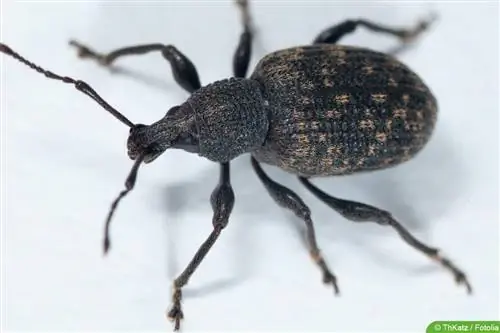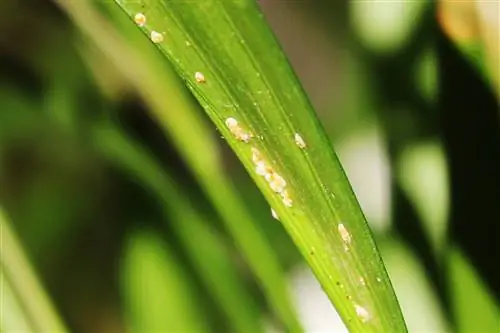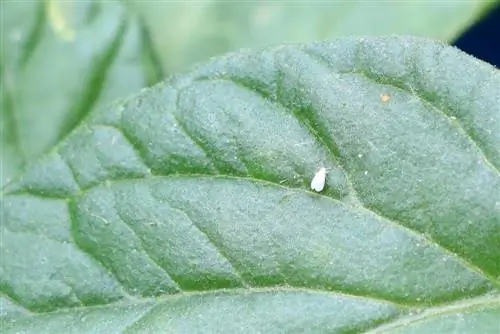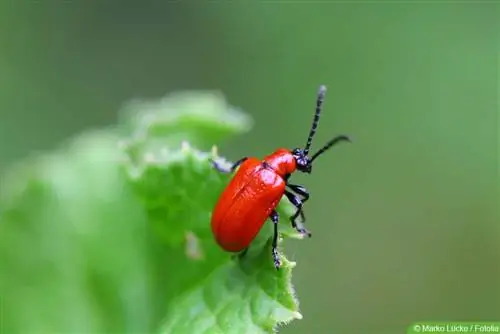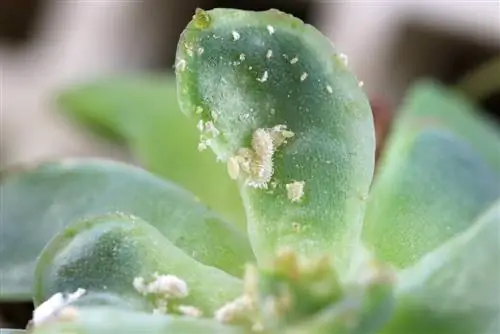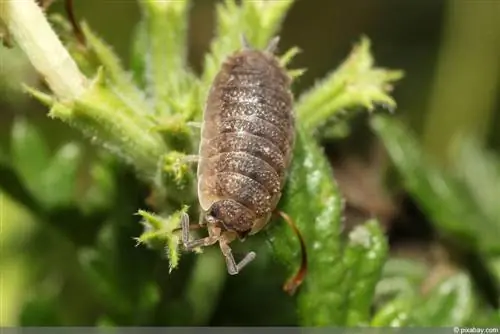- Author admin caroline@plants-knowledge.com.
- Public 2023-12-17 03:39.
- Last modified 2025-01-24 12:45.
The black weevil is one of the most feared pests. You can successfully combat the pest with some home remedies. There are also methods to prevent it from settling in the garden in the first place.
Collect beetles
The beetles prefer to attack shrubs such as rhododendrons or cherry laurel. The beetles are usually introduced into the garden through new plants and then spread. An infestation can usually be recognized by circular feeding marks on the edges of the leaves.
An effective way is to collect the beetles. This will prevent the insects from laying eggs and multiplying. If you have discovered an infestation, you have to go hunting in the evening because the insects are active at night.
Instructions for collecting
- Spread cloth under plants
- Shake off branches well
- Pick up beetles
- Dispose of beetles in organic waste
In the early morning hours there are usually still individual specimens on the plants. You can still collect these by hand.
Lay out traps
You can collect the beetles more efficiently if you set out targeted traps. You can hang upside down flower pots filled with wood shavings on the affected plants. The beetles use the pots as hiding places during the day and are easy to catch there.
Tip:
The beetles also like to hide in cracks in grooved boards. Place them on the ground around the affected plants.
Nematodes
Nematodes are an effective measure, especially against the beetle larvae. Nematodes are roundworms that specifically seek out the larvae. They nest in the larvae and destroy them from the inside.
You can get the nematodes from specialist retailers and they are introduced into the soil around the affected plants. To do this, the nematodes are added to the irrigation water and all you have to do is water the plants with them. The nematodes start work immediately and fight the larvae within a short time.
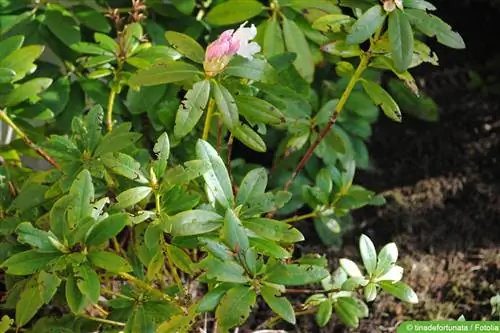
As a rule, you also have to release the nematodes repeatedly because the beetles keep laying eggs. As long as the nematodes find food in the soil, they stay in the area of the affected plants. If there is no more food available, the roundworms die again. If an infestation by the next generation occurs again, introduce the nematodes again with the irrigation water.
tansy tea
Rainsy is a good remedy against harmful insects and also helps against the black weevil. You can prepare it as manure, in acute cases you should prepare a strong tea.
Instructions for tansy tea
- 30 g dried herb
- 1 l water
- Boil water
- Bald cabbage
- Let the tea cool down
- Filter herb
- Spraying plants with tea
Note:
If you use a manure, the plant absorbs the ingredients. This will allow the weevils to leave the plants and you can also prevent an infestation.
Wormwood Manure
For the manure they need around 300 grams of fresh cabbage, which they mix in ten liters of water. Put everything in a bucket that you can cover. The manure is ready as soon as it no longer foams. Depending on the weather, this takes around three to four weeks.
Note:
In acute cases, you can apply the manure undiluted to the plants. As a preventative measure, you can dilute the wormwood manure with water in a ratio of 1:10.
Coffee grounds
Coffee grounds not only help against harmful beetles, but are also a fertilizer. Once a month, work the coffee grounds into the soil around the endangered plants. The intense smell drives away the beetles and prevents them from laying eggs.
Note:
Garlic has a comparable effect due to its intense smell. As an alternative to the coffee grounds, you can also incorporate crushed garlic.
Preventing black weevils
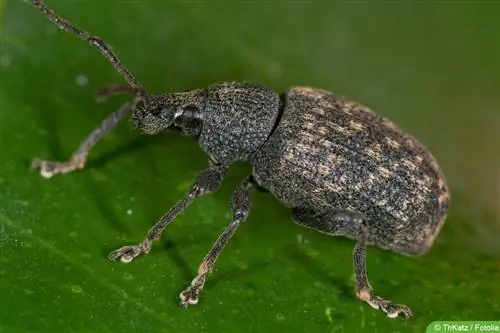
Instead of fighting the beetles, it is easier to prevent an infestation. When you buy new plants, check them for infestation. To be on the safe side, you can first set up the plants separately and observe whether any pests appear. Only when there is no longer any danger can you put the newly purchased plants in the garden. Various predators that you can plant in the garden are also helpful against pests.
Natural enemies
- Birds
- Common Toads
- Mole
- Hedgehog
- Lizards
- ground beetles
Create areas in the garden where predators can feel comfortable. Shelters such as earwigs directly on the plants are also helpful. They also settle in upturned pots filled with wood shavings.

